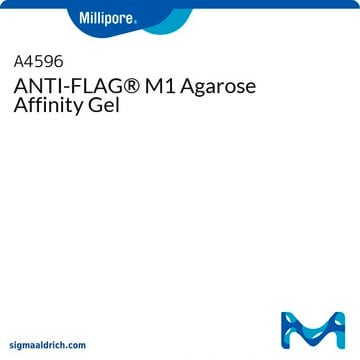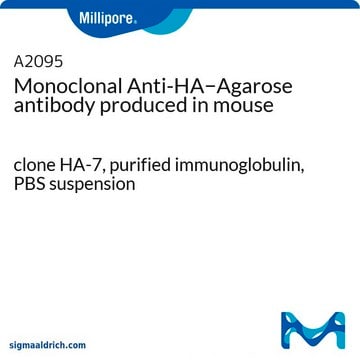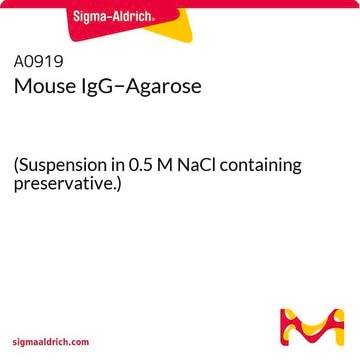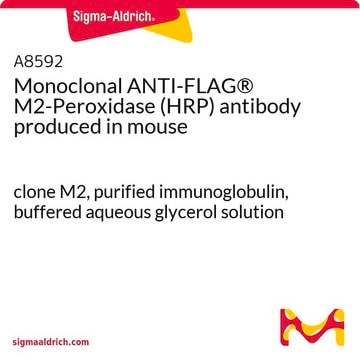F2426
EZview™ Red ANTI-FLAG® M2 Affinity Gel
clone M2
Synonym(s):
Monoclonal ANTI-FLAG® M2 antibody produced in mouse, Anti-ddddk, Anti-dykddddk
About This Item
Recommended Products
clone
M2, monoclonal
Quality Level
analyte chemical class(es)
proteins
technique(s)
affinity chromatography: suitable
immunoprecipitation (IP): suitable
matrix
4% agarose bead; 45-165μm bead size
isotype
IgG1
capacity
≥0.6 mg/mL, gel binding capacity
shipped in
wet ice
storage temp.
−20°C
Looking for similar products? Visit Product Comparison Guide
General description
Specificity
Application
Elution - FLAG peptide, Glycine, pH 3.5, 3x FLAG peptide
Learn more product details in our FLAG® application portal.
Physical form
Legal Information
Disclaimer
related product
Storage Class Code
10 - Combustible liquids
WGK
WGK 3
Flash Point(F)
Not applicable
Flash Point(C)
Not applicable
Certificates of Analysis (COA)
Search for Certificates of Analysis (COA) by entering the products Lot/Batch Number. Lot and Batch Numbers can be found on a product’s label following the words ‘Lot’ or ‘Batch’.
Already Own This Product?
Find documentation for the products that you have recently purchased in the Document Library.
Customers Also Viewed
Protocols
Protocol for immunoprecipitation (IP) of FLAG fusion proteins using M2 monoclonal antibody 4% agarose affinity gels
Related Content
Protein purification techniques, reagents, and protocols for purifying recombinant proteins using methods including, ion-exchange, size-exclusion, and protein affinity chromatography.
Protein purification techniques, reagents, and protocols for purifying recombinant proteins using methods including, ion-exchange, size-exclusion, and protein affinity chromatography.
Protein purification techniques, reagents, and protocols for purifying recombinant proteins using methods including, ion-exchange, size-exclusion, and protein affinity chromatography.
Protein purification techniques, reagents, and protocols for purifying recombinant proteins using methods including, ion-exchange, size-exclusion, and protein affinity chromatography.
Our team of scientists has experience in all areas of research including Life Science, Material Science, Chemical Synthesis, Chromatography, Analytical and many others.
Contact Technical Service














